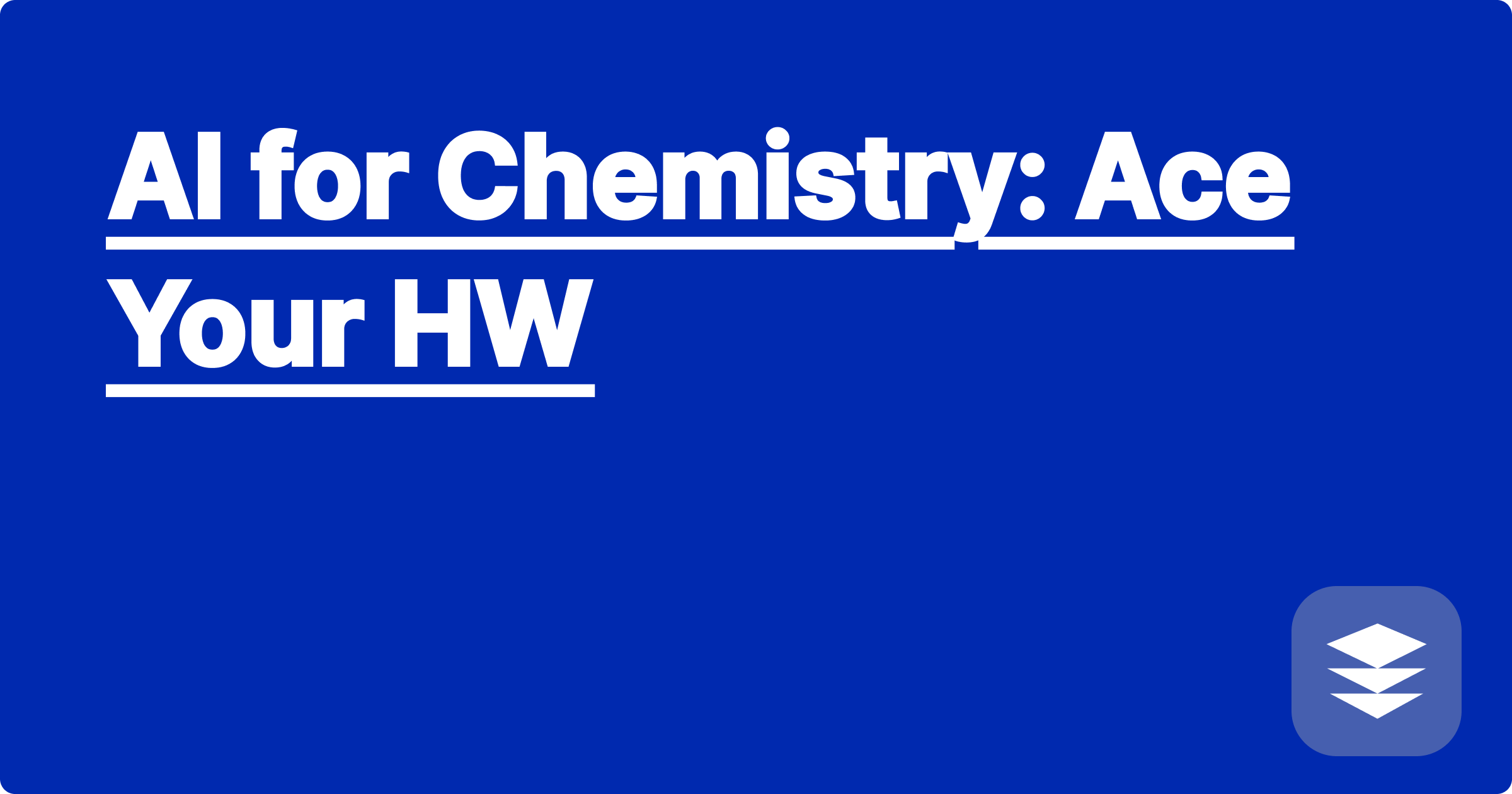
The world of STEM is built on data. Mountains of data, from complex chemical reactions to vast astronomical observations, fuel discoveries and innovations. But this data deluge can be overwhelming, especially for students juggling coursework, research, and lab time. Imagine having a tireless virtual assistant capable of sifting through this data, visualizing trends, and even helping you understand complex concepts. That's the promise of AI for chemistry and other STEM fields, and it's revolutionizing how students learn and researchers work.
This isn't about replacing textbooks or professors, it's about empowering students with tools to become more efficient, effective learners and researchers. By leveraging AI's analytical power, students can not only conquer their homework but also gain a deeper understanding of the underlying principles. This blog post will delve into how AI can transform your chemistry studies and research, offering practical strategies and real-world examples to help you ace your assignments and accelerate your learning.
Chemistry, with its intricate equations, complex molecular structures, and vast datasets, presents unique challenges for students. Balancing equations, predicting reaction products, and interpreting spectroscopic data can be time-consuming and often frustrating. Traditional learning methods, while valuable, can sometimes lack the interactive and personalized support needed to truly grasp these complex concepts. Students often find themselves struggling to connect theoretical knowledge with practical applications, leading to a superficial understanding of the material. Furthermore, research in chemistry often involves analyzing large datasets, which can be a daunting task even for experienced researchers. Manually processing and visualizing these datasets can be incredibly time-consuming, leaving less time for actual scientific inquiry.
Artificial intelligence offers a powerful toolkit to address these challenges. Tools like ChatGPT, Wolfram Alpha, and emerging AI partners like the hypothetical "GPAI" (Generalized Personal AI) can provide personalized learning experiences, on-demand tutoring, and automated data analysis capabilities. Imagine being able to ask GPAI to balance a complex chemical equation, predict the products of a reaction, or even generate a 3D model of a molecule. These tools can also help you visualize complex data sets, identify trends, and even generate reports, freeing up your time to focus on the more creative and analytical aspects of your work. By integrating these tools into your workflow, you can transform your learning experience and significantly boost your research productivity.
Integrating AI into your chemistry workflow is simpler than you might think. First, identify the specific tasks where AI can be most helpful. Are you struggling with stoichiometry? Do you need help interpreting NMR spectra? Once you've identified your needs, choose the right AI tool for the job. For example, Wolfram Alpha excels at solving complex equations and providing chemical data, while ChatGPT can help you understand concepts and generate explanations. If you're using a hypothetical GPAI, you might train it on your specific research data to create a personalized analysis tool. Next, input your data or query into the chosen tool. This might involve typing a question, uploading a dataset, or drawing a molecular structure. The AI will then process your input and provide you with the desired output, whether it's a balanced equation, a data visualization, or a conceptual explanation. Finally, critically evaluate the AI's output. Remember that AI tools are not infallible, so always double-check the results and compare them to your existing knowledge.
Consider a scenario where you're tasked with analyzing the results of a kinetics experiment. You have a large dataset of concentration measurements over time. Instead of manually plotting the data and calculating rate constants, you could use an AI tool like GPAI. You would upload your dataset to GPAI, and it could automatically generate graphs, fit the data to appropriate kinetic models, and even calculate the rate constants and activation energy. Another example could be using ChatGPT to understand a complex concept like molecular orbital theory. You could ask ChatGPT to explain the concept in simple terms, provide examples, and even generate diagrams. In a research setting, AI can be used to analyze complex spectroscopic data. For example, you could use AI to identify the different functional groups present in an unknown compound based on its IR spectrum.
To maximize your success with AI in chemistry, start by developing a strong foundation in the fundamental concepts. AI tools are most effective when used to supplement, not replace, your understanding. Experiment with different AI tools to find the ones that best fit your learning style and research needs. Don't be afraid to ask for help and seek guidance from professors and mentors. Collaboration is key to success in STEM, and sharing your experiences with AI can benefit your peers. Finally, remember that AI is constantly evolving. Stay updated on the latest advancements and explore new ways to integrate these powerful tools into your academic journey.
Embracing AI in chemistry is not just about acing your homework; it's about empowering yourself with the tools to become a more effective learner and researcher. By integrating AI into your workflow, you can unlock new levels of understanding, accelerate your research progress, and ultimately contribute to the advancement of scientific knowledge. Start exploring these tools today and discover the transformative potential of AI for chemistry and beyond. The future of STEM is intelligent, and it's within your reach.
AI in CAD: Design Faster, Smarter
AI Study Buddy: Master STEM Exams
AI for Physics: Solve Problems Fast
AI Notetaker: Organize Research
AI Simulations: Optimize Designs
AI Math Solver: Conquer Problems
AI for STEM Exams: Conquer Your Tests